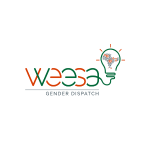

Women’s Economic Empowerment in South Asia (Hosted by SAR GIL)
Tags
- Women’s Groups (20)
- Gender-based Violence (17)
- Implementation Completion Report (ICR) (15)
- Measurement (10)
- Leadership (18)
- Afghanistan (13)
- Social Norms (8)
- Infographics (9)
- Transportation (10)
- Green Transition (6)
- Toolkits (10)
- Pakistan (17)
- Energy (10)
- Jobs (43)
- Self-help Groups (12)
- Infrastructure (7)
- Agriculture (12)
- Social Protection (12)
- Digital Inclusion (16)
- Nepal (7)
- Private Sector (14)
- Care Economy (10)
- Agency and Self-efficacy (4)
- Bhutan (2)
- Sri Lanka (5)
- Podcast (17)
- Operational Documents (20)
- India (23)
- Assets and Resources (14)
- Bangladesh (19)
- Maldives (1)
- Climate Change (18)
- Entrepreneurship (19)
- Financial Inclusion (10)
- Policies and Legislation (14)
- Male Engagement (7)
- Gender Budgeting (7)
- Implementation Completion Report Review (ICRR) (5)
- Education and Skills (22)
Documents
Does Financial Development Reduce Gender Disparity in Top Manager Positions in Manufacturing SMEs in Developing Countries? (2024)
Women often face more hurdles than men in obtaining finance, especially when credit supply is limited and financial markets are less developed. As a result, owners of firms may prefer
Gendered Laws and Women’s Financial Inclusion (2023)
This paper documents the relationship between legal gender equality and the use of financial services, using individual-level data from 148 developed and developing economies. The analysis, which combines data from
Women’s Financial Inclusion Toolkit – Paving the Way for Women’s Economic Empowerment (2021)
The purpose of this toolkit is to help practitioners working in developing countries advance women’s financial inclusion and navigate the existing barriers. Financial inclusion is a catalyst towards growth and opportunity and
Supply-Side Gender-Disaggregated Data for Advancing Financial Inclusion: Insights and Areas for Further Research (2024)
The gender gap in financial inclusion continues to be unacceptably high in most developing countries, highlighting the need to prioritize policies that promote gender equity in the financial sector more
Women and Equitable Growth in a Resource-Constrained World Unleashing Capital for Women Entrepreneurs in Africa (2024)
This paper addresses the need to reform the international development finance architecture in ways that expand access to affordable credit for women entrepreneurs. It lays out an evidence-based pathway, emphasizing
Building the Business Case for Women’s Inclusive Financing in Last-Mile Renewable Energy Markets in Sub-Saharan Africa (2022)
One of the key constraints in improving energy access in the renewable energy sector is the availability and affordability of financing, especially for women-owned or -led micro, small, or medium
Can Digital G2P Payments Increase Financial Inclusion and Empower Women? (2023)
Yes, Government-to-People (G2P) payments can empower women to make autonomous decisions about household finances, especially child-related spending. This insight is gleaned from the experiences of women enrolled in the Bangladesh
The Unintended Impacts of Formal Credit Programs on Social Networks: Evidence From India
This audio underlines the unintended impact of credit programs in the context of India. Specifically, microfinance schemes can trigger a shrinkage in social networks among both borrowers as well as
A Systematic Review of Financial Product Interventions on Women’s Economic Empowerment
The South Asia Gender Innovation Lab has published a review of studies that summarizes the effects of providing grants, credit, or flexible loan contracts on women’s economic empowerment outcomes in South Asia. The
The Social Frontier of Financial Inclusion
A podcast that takes a deep dive into gender norms in Papua New Guinea and the impact of new technology in making financial services available in remote regions of the world. The